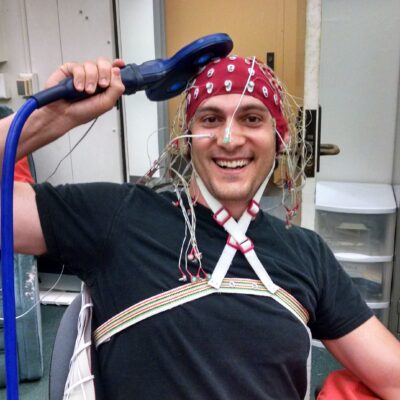Jeremy Teman Social Science
Role of Motor Inhibition in Forced Reaction Time Tasks
Activities like driving demand the ability to respond quickly and accurately to changes in ones environment. A fundamental scientific question concerns what neural processes determine response time (RT). A widely held assumption is that RT represents the aggregate time required to generate an accurate movement. However, recent research suggests that humans can be forced to accurately produce movements more rapidly than their fastest voluntary RTs. Inhibition of the motor system is known to be involved in motor planning processes during the performance of voluntary RT tasks, which raises the question: is motor inhibition absent during non-voluntary RT tasks? Jeremy aims to answer this question using non-invasive brain stimulation while participants perform RT tasks to record brain activity related to the presence, or absence, of motor inhibition.
